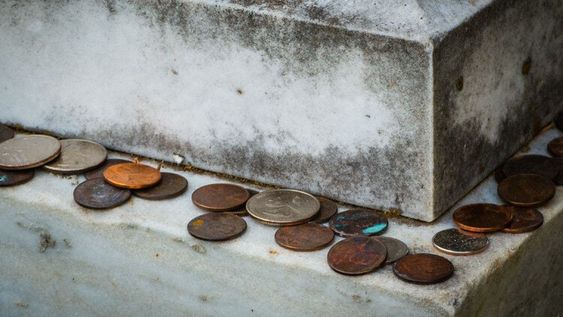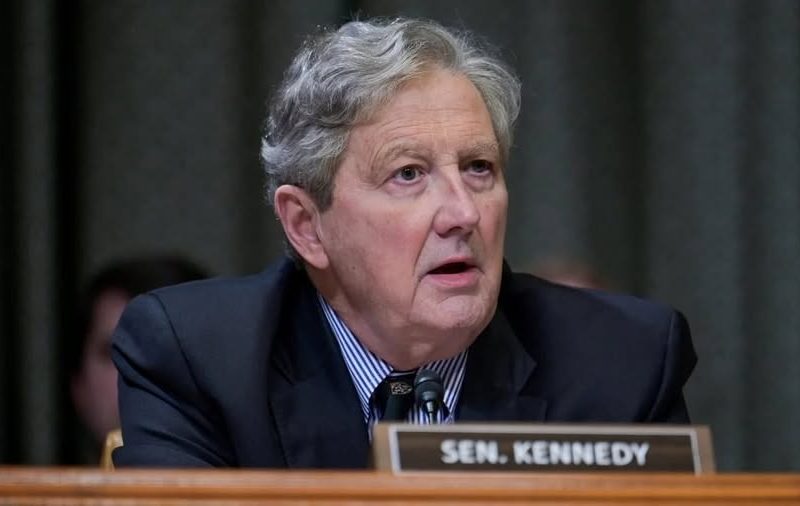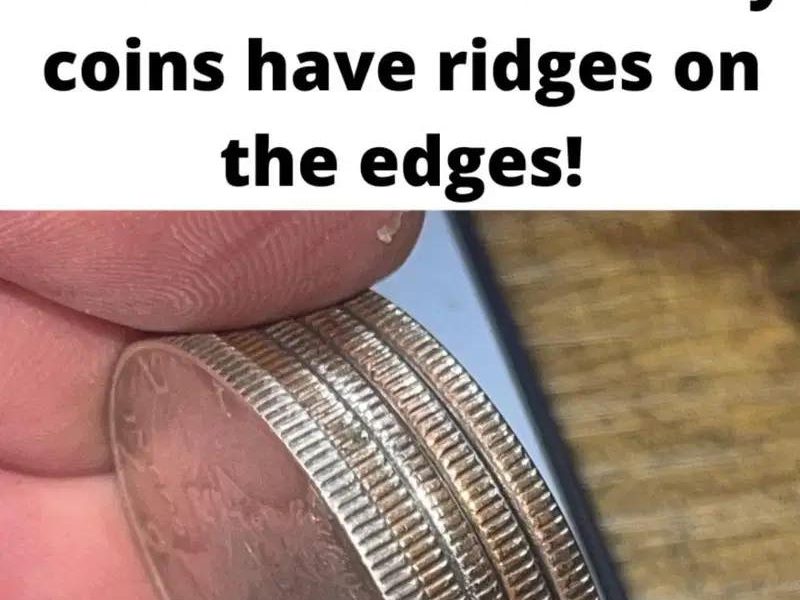When it comes to remembering and paying tribute to deceased family members, we all have different ways of expressing our love, grief, and respect. Whether it is through special practices, solitary moments of reflection, or celebrations of the lives of the departed, every tradition has significance. In today’s society, it is important to understand these varied cultures and acknowledge the ways people choose to honor their loved ones, even if these actions seem odd or unusual.
One such tradition that often attracts attention is the placing of coins on gravestones. Perhaps you’ve asked yourself, “Why do people do this?” following the discovery of pennies scattered on gravestones in cemeteries. It is observed across the United States and in certain other countries, and like many long-standing traditions, it has deep significance.
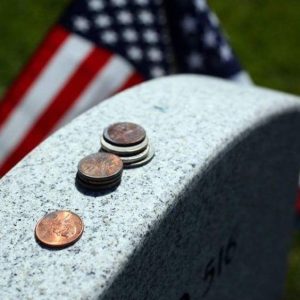
When I first saw pennies on a gravestone as a child, I was at my grandfather’s last resting place. The pennies, nickels, dimes, and other coins strewn on the headstones continued to captivate me. I couldn’t resist wondering why it was carried out. Was it an homage to the person? A family custom? As I became older and more interested, I finally took the time to understand this mysterious and important practice.
It soon became evident that this somewhat mysterious ritual originated in military culture. Several early explanations that connected the practice to Roman Empire soldiers respecting customs have been refuted by more recent research. Instead, it is now widely acknowledged that the habit began in the United States, specifically during and after the Vietnam War.

During this period of intense political controversy, both soldiers and civilians searched for ways to remember fallen warriors without reviving old scars related to the controversial conflict. Placing a coin on the grave became a little but meaningful gesture rather than contacting the family directly, which might lead to difficult discussions about the war. By demonstrating respect and solidarity without using words, it paid tribute to the soldier’s life as well as the complex emotions surrounding the battle.
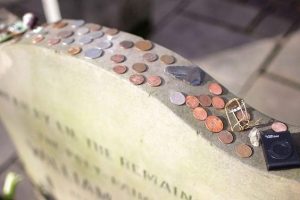
The practice of putting pennies on gravestones has evolved over time and now has uses more than only expressing respect during divisive political times. Veterans and civilians alike have adopted this tradition as a way to honor the lost. The act of placing a coin on a headstone is very symbolic and personal because each coin has a unique meaning.
A basic visit costs one penny. It demonstrates to others that someone remembered the deceased. A nickel represents a bond that started during training, with the visitor and the deceased soldier sharing the same boot camp. A dime has a specific meaning; it indicates that the visitor served with the departed. It is a powerful illustration of typical customer service interactions. A quarter is arguably the most poignant of them. It was left by someone who was present when the soldier died, and it recognizes the strong and personal connection the two shared in their final moments together.
This simple yet significant ritual shows that the bonds of fraternity and service transcend language and time, even after death.
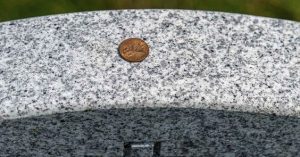
The custom of placing pennies on gravestones was initially adopted by the military, but it has gradually become a common way for people to remember. To show love, respect, and remember for non-military family members or loved ones, people leave coins at cemeteries. Even if a coin is worthless, its presence indicates that the memory of the departed lives on in the minds of people who knew them.
Perhaps you now have a greater understanding of pennies’ significance if you have ever seen them on gravestones. It’s a tradition that quietly but powerfully responds to the human need to remember and pay respect to the deceased. A coin might be placed to symbolize an unshakable bond, a shared life, or a cherished memory.
Please let us know if you have ever seen this action and whether you understand its importance. The custom of leaving coins ensures that our ancestors’ legacy is never forgotten and bridges the gap between the past and present. Every act of commemoration has a history.
